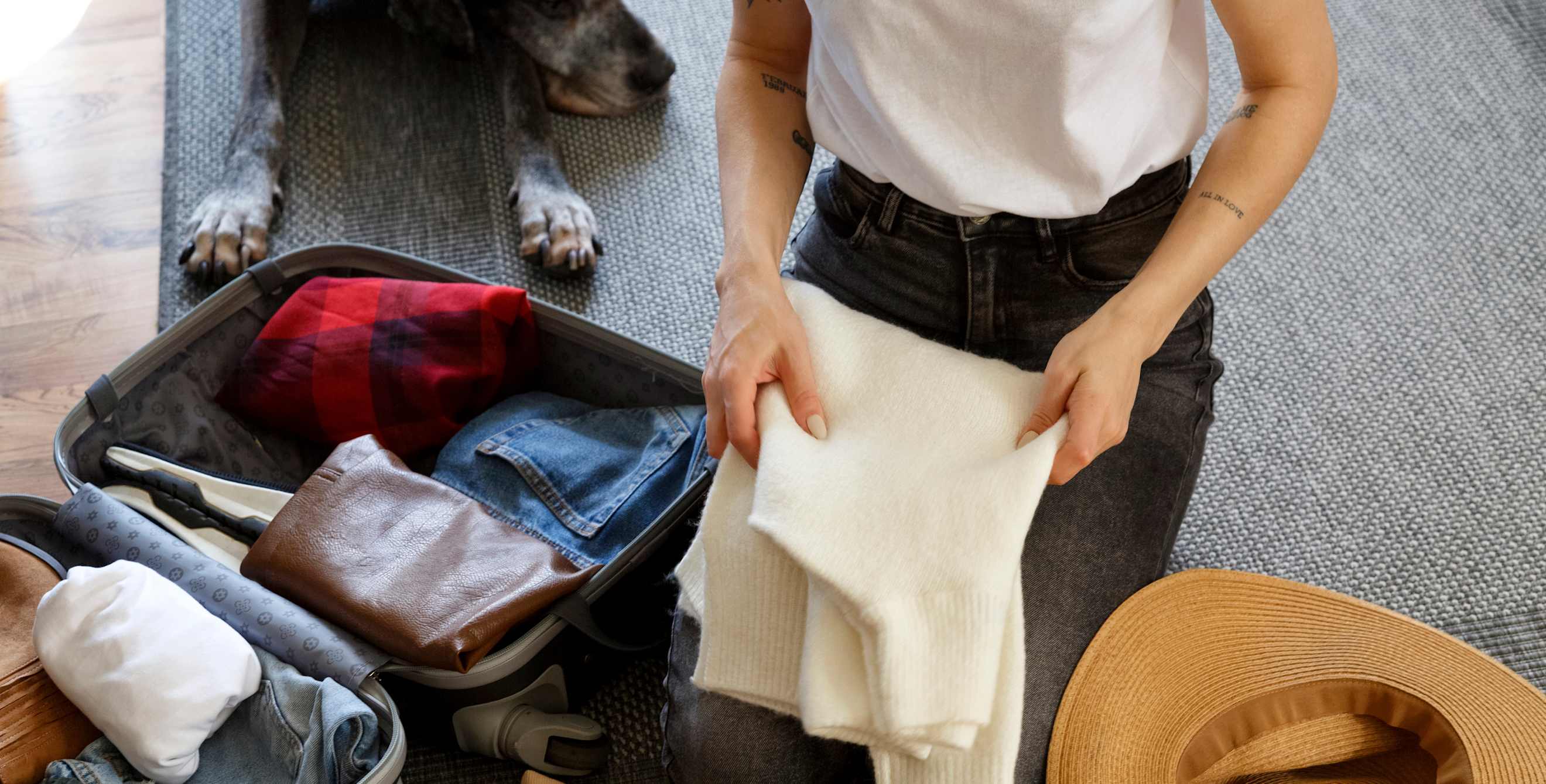
In Defense of Overpacking
Why travel light? For some of us, more luggage makes for a happier vacation.

My mother called it her chemodan, which is Russian for "suitcase," but eBay sellers would offer it as a "vintage train case." The hard-sided kit, about a foot wide and less than 10 inches high and deep, features silk lining and a city of plastic shelving inside.
My mother took her little blue case everywhere she traveled, and I grew up with an image of how civilized it was to have a place for everything, to arrive at a destination and settle in without having to untangle jewelry or dig to the bottom of a lighter-weight but malleable bag for lipstick.
A few years ago, she decided she no longer had the luxury of carrying the case and gave it to me.
"But it's the height of glamour," I objected. "It's your trademark piece!"
"Glamour costs too much," she replied.
With airlines now charging for checked luggage (typically $25 per bag), my mother didn't want to compete for the hotly contested space in overhead bins. She couldn't bear to check her precious chemodan, either. So she bestowed it upon me, because I have not adjusted my approach to travel. I am an overpacker, and I am not ashamed.
Call me a revolutionary if you must, but I cling to the notion that vacations should be comfortable. When I fly, I still check luggage, or ship it ahead of time. I bring a big suitcase, plus a small one, on weekend road trips. I pack contingency outfits and just-in-case-wear. I put in a redundant pair of shoes that goes better with Contingency Outfit One than Main Outfit Two. I bring two books, the one I'm reading and a backup, so I won't run out of material. I carry a full complement of cosmetics, because I am not 25 anymore. In other words, I bring choices.
I know, schlepping all that stuff is a hassle and an expense. I not only contribute to the nearly $4 billion that U.S. airlines collect annually in baggage fees, but often end up tipping porters, drivers, bellhops, or others, because I literally can't carry all I've brought with me. You might think that's foolish, but here's the thing: It costs more money—and valuable vacation time—to buy additional clothes or toiletries at my destination.
Overpacking is worth it. As I get older, travel gets a little harder. It's harder to leave my own bed. It's harder to imagine, now that I've experienced plenty of ways things can go wrong, not having choices.
I've tried to pare down. Last summer, I took a weeklong trip to Switzerland with only a large backpack. Traveling light wasn't more convenient. I quickly ended up with two pairs of dirty jeans, a stained shirt, a smelly shirt, no makeup—and no options. Every morning I dreaded getting dressed. In Zurich, I was cold at night, because my only sweater got damp. In the Alps, I had to buy a jacket, which didn't fit into my bag. I carried it over my arm for two days until I finally bought a suitcase in Zermatt.
Never again. I'm back to using big suitcases packed sloppily. My refusal to be meticulous on vacation is one of the joys of overpacking.
My grandmother could stuff a small suitcase neatly and tightly, like a clown car. I've seen friends squeeze entire wardrobes into carry-ons by rolling their garments. But I just fold my clothes and put them in. Sometimes I don't even put my shoes on the bottom like you're supposed to. I'm at peace with it.
Traveling light fits into a new moralism that has overtaken us. My friends read Marie Kondo books about decluttering and then purge their homes of unnecessary objects that do not "spark joy." The less clutter they have, the more superior they feel. This perception extends from their closets to their suitcases.
"The appeal of decluttering," says Lori Gottlieb, a marriage and family therapist based in Beverly Hills, Calif., "is that it gives us the illusion that we're freeing ourselves up by letting go of the things around us. But you can have a neat house or a light suitcase and still put all kinds of clutter and chaos in your mind."
Overpacking can be just as freeing for some people, she adds. "They don't have to use that mental space to worry about unpredictable weather conditions, what they might feel happiest wearing that day, or whether they might spill red wine on the one clean top they have left."
Maybe neither camp is morally correct. Or perhaps both are. Personally, I pity the light packers. When I arrive at my destination, I have enough choices and creature comforts to feel at home in another place. Because that's why I travel, to feel more at home in the world. I pack my mother's chemodan with things other people may deem nonessential but which I utterly cannot do without.